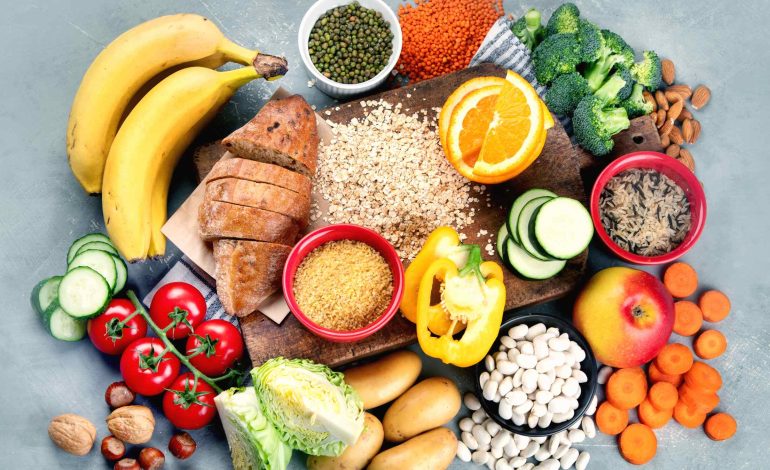Eating for Wellness: How Food Shapes Your Health and Energy

Food is more than fuel—it’s medicine, energy, and a cornerstone of overall well-being. The choices we make at the table directly impact our physical health, mental clarity, energy levels, and even longevity. In a world filled with processed options and fast-paced lifestyles, learning how to use food as a tool for better health can transform the way we live and feel every day.
By understanding how to build a balanced diet, focus on nutrient-rich ingredients, and develop sustainable habits, we can create a way of eating that supports long-term vitality.
Why Nutrition Is the Foundation of Health
Nutrition plays a critical role in preventing chronic illnesses, supporting immune function, and maintaining a healthy weight. Studies show that diets high in whole, unprocessed foods reduce the risk of conditions like type 2 diabetes, heart disease, and certain cancers. Conversely, excessive consumption of processed foods, sugar, and unhealthy fats is linked to inflammation and metabolic disorders.
A well-balanced diet doesn’t just prevent disease—it promotes energy, mental clarity, and emotional stability. Nutrients like omega-3 fatty acids, antioxidants, and B vitamins contribute to brain function, while adequate protein supports muscle maintenance and recovery.
Building a Balanced Plate
A healthy diet isn’t about restriction; it’s about balance and variety. A well-rounded plate typically includes:
-
Fruits and vegetables: Packed with vitamins, minerals, and antioxidants that fight inflammation and strengthen immunity.
-
Whole grains: Foods like oats, quinoa, and brown rice provide steady energy and support gut health.
-
Lean proteins: Sources such as fish, poultry, beans, and lentils help build and repair tissues.
-
Healthy fats: Found in avocados, nuts, seeds, and olive oil, these fats promote brain and heart health.
-
Plenty of water: Hydration is essential for energy, digestion, and nutrient absorption.
This balance ensures that the body receives the fuel it needs for optimal function while reducing the risk of nutritional deficiencies.

The Role of Superfoods and Functional Ingredients
Certain foods stand out for their exceptional nutrient density. These “superfoods” can enhance a healthy diet by delivering powerful health benefits. Examples include:
-
Berries: High in antioxidants that protect against cellular damage.
-
Leafy greens: Rich in vitamins, minerals, and fiber for digestive and cardiovascular health.
-
Fatty fish (like salmon): Loaded with omega-3s for brain and heart health.
-
Nuts and seeds: Sources of healthy fats, protein, and minerals like magnesium and zinc.
-
Fermented foods: Yogurt, kimchi, and kefir support gut health with beneficial probiotics.
Incorporating these ingredients regularly can boost energy, improve digestion, and strengthen the immune system.
Food and Mental Health
Nutrition doesn’t just affect the body—it significantly influences the mind. Diets high in sugar and processed foods are linked to higher rates of depression and anxiety, while nutrient-rich diets can improve mood and cognitive function.
For example, the Mediterranean diet, which emphasizes vegetables, fish, whole grains, and olive oil, has been associated with lower rates of depression and improved brain health. Nutrients like omega-3 fatty acids, magnesium, and B vitamins play a role in regulating mood and supporting neurological health.
Eating well, therefore, isn’t just about physical wellness; it’s a key component of emotional balance and focus.
Avoiding Common Dietary Pitfalls
Despite growing awareness of healthy eating, many people struggle with common traps:
-
Overconsumption of processed foods: High in sugar, sodium, and unhealthy fats, these foods contribute to weight gain and chronic disease.
-
Skipping meals: Leads to overeating later and energy crashes.
-
Portion distortion: Larger servings, even of healthy foods, can contribute to excess calorie intake.
-
Liquid calories: Sugary drinks and specialty coffees can add hundreds of hidden calories to a day’s intake.
Being mindful of these habits and making gradual adjustments can lead to better long-term health without drastic dieting.
The Power of Hydration
While food gets most of the attention, hydration is equally vital to health. Water supports digestion, regulates body temperature, and helps transport nutrients throughout the body. Dehydration can cause fatigue, headaches, and difficulty concentrating, often being mistaken for hunger.
Most adults benefit from around 2–3 liters of water per day, though needs vary based on activity levels and environment. Replacing sugary beverages with water, herbal teas, or infused water is a simple way to reduce excess sugar and calories.
Healthy Eating for Energy and Performance
For those with active lifestyles or demanding schedules, eating for energy is crucial. Key tips include:
-
Prioritizing complex carbohydrates like whole grains and legumes for steady energy release.
-
Eating balanced snacks (such as fruit with nuts) to avoid energy dips.
-
Including enough protein to support muscle recovery, especially for those who exercise regularly.
-
Timing meals strategically to prevent crashes and support focus throughout the day.
Athletes and fitness enthusiasts may also benefit from tailored nutrition plans that include specific macronutrient ratios and recovery-focused foods.
Creating Sustainable Eating Habits

Fad diets often promise quick results but rarely deliver long-term success. Sustainable eating is about building habits that work for your lifestyle. Strategies include:
-
Meal prepping: Reduces reliance on fast food or processed options.
-
Mindful eating: Paying attention to hunger cues and eating slowly can prevent overeating.
-
Flexibility: Allowing for occasional indulgences helps maintain balance without feelings of restriction.
-
Education: Learning to read nutrition labels and understand ingredients empowers better choices.
Consistency, rather than perfection, is the key to building a diet that supports lifelong health.
The Bottom Line: Food as a Path to Wellness
The relationship between food and health is undeniable. By focusing on whole, nutrient-rich ingredients, staying hydrated, and adopting balanced eating patterns, anyone can enhance their energy, reduce disease risk, and improve their overall well-being.
Healthy eating isn’t about strict rules—it’s about creating a lifestyle that nourishes both the body and mind. With the right approach, food becomes more than just sustenance; it becomes a powerful tool for living a vibrant, balanced life.







